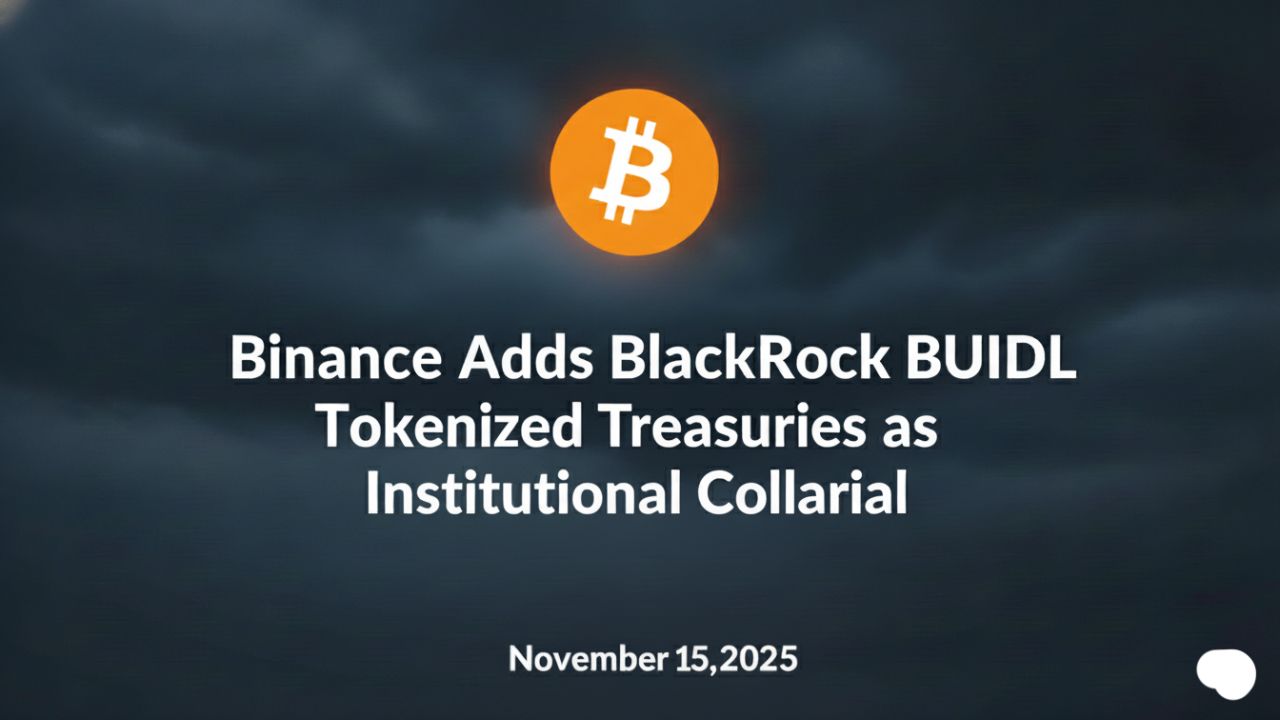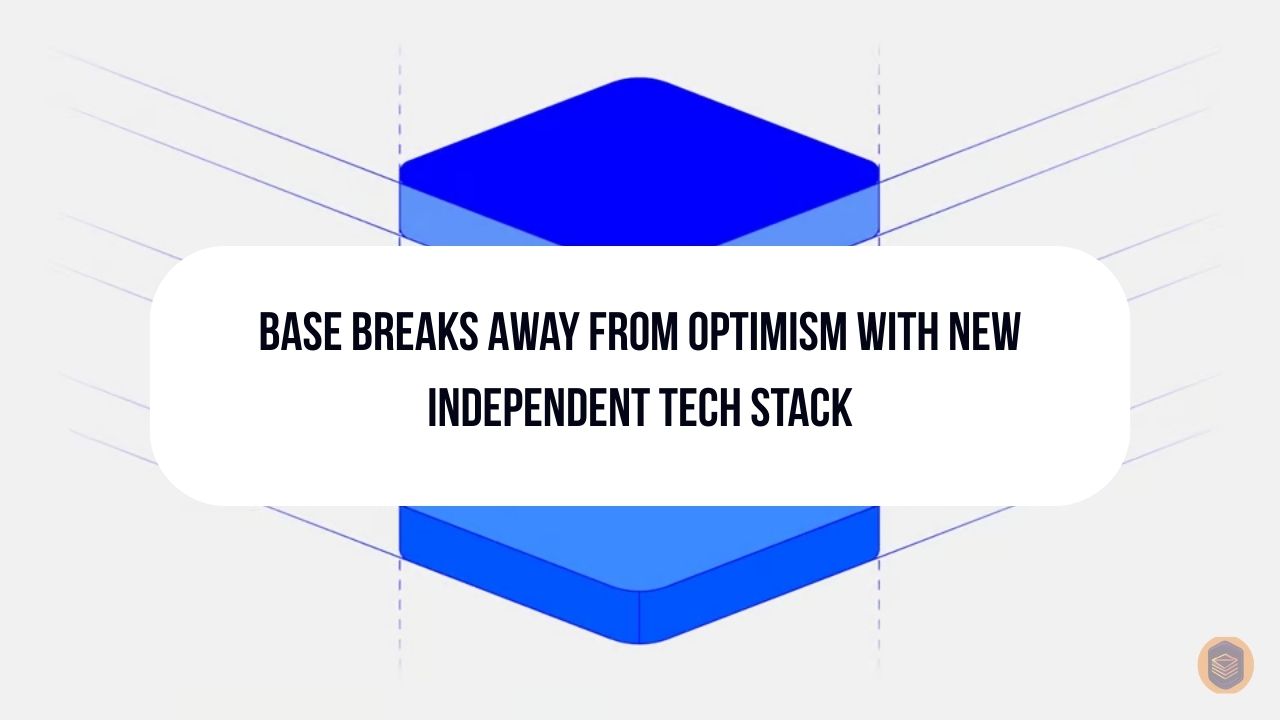Binance integrated BlackRock’s $2.5 billion tokenized Treasury fund BUIDL as off-exchange collateral on Friday, letting institutional clients use the yield-bearing asset to back trading positions while keeping funds with third-party custodians. A new BUIDL share class also launched on BNB Chain, extending the token beyond Ethereum into Binance’s native DeFi ecosystem.
The move bridges traditional finance and crypto trading by allowing institutions to earn Treasury yields while maintaining active trading positions. Catherine Chen, Head of VIP & Institutional at Binance, said clients have been asking for “more interest-bearing stable assets they can hold as collateral while actively trading on our exchange.”
BUIDL now joins Circle’s USYC and OpenEden’s cUSDO as yield-bearing collateral options on Binance. The fund, issued through Securitize, holds U.S. Treasury bills, cash, and repurchase agreements. It pays daily dividends and maintains a $1 peg similar to stablecoins but with Treasury-backed yields.
BlackRock launched BUIDL in March 2024 as its first tokenized product on a public blockchain. Since then, it’s grown to become the largest tokenized Treasury fund on the market at $2.52 billion, ahead of Circle’s USYC at $1.06 billion and Franklin Templeton’s BENJI at $850 million. Total tokenized Treasury market cap sits at $8.57 billion according to RWA.xyz.
In essence, the off-exchange collateral model mirrors traditional finance practices where institutions pledge government bonds through bank-run triparty systems rather than depositing cash on trading venues. This structure reduces counterparty risk by keeping assets with qualified custodians instead of exchanges.
For institutional traders, using BUIDL as collateral means earning risk-free Treasury yields on margin capital while it’s deployed for trading. That’s a significant improvement in capital efficiency compared to holding non-yielding stablecoins or cash as collateral.
Binance isn’t the first to accept tokenized Treasuries as collateral. Deribit and Crypto.com began accepting BUIDL in July, positioning it as a low-volatility alternative to stablecoins for institutional clients. Bybit followed in September with support for QCDT, a Dubai Financial Services Authority-approved tokenized money market fund.
The trend shows tokenized Treasuries becoming standard infrastructure for institutional crypto trading. They’re now the second-largest real-world asset category after stablecoins, growing rapidly as exchanges compete for sophisticated capital.
See also: Changpeng Zhao Banned From Administrative Roles at Binance, Keeps 90% Stake Control
BNB Chain Expansion
Launching BUIDL on BNB Chain significantly expands its utility beyond Ethereum, Solana, Avalanche, Aptos, Arbitrum, Polygon, and Optimism where it already exists. BNB Chain has $7.4 billion in total value locked according to DeFiLlama, creating substantial potential for DeFi integration.
The new share class opens BUIDL to lending protocols, yield farming strategies, and other DeFi applications on Binance’s blockchain. Carlos Domingo, Securitize’s co-founder and CEO, said the expansion “further extends its reach and utility” and demonstrates that “regulated real-world assets” can serve practical roles in trading and DeFi.
BNB Chain has seen significant growth in 2024, driven partly by the derivative platform Aster and integrations with Binance Alpha and Binance Wallet. Major RWA issuers like Ondo Finance have begun building on BNB Chain, validating its position as serious DeFi infrastructure.
Bringing BUIDL to BNB Chain positions it both as exchange collateral on centralized platforms and as a building block for decentralized protocols. That dual functionality could accelerate adoption among institutions that want exposure to both CeFi and DeFi opportunities.
See also: Breaking : Solana’s Price Surge Gives It An Edge Over BNB In Market Capitalization
Tokenized Treasuries Gaining Traction
The growing acceptance of tokenized Treasuries as collateral signals market maturation. Institutional investors increasingly view blockchain-based Treasury products as legitimate alternatives to traditional money market funds, especially when they offer superior settlement speed and 24/7 availability.
BlackRock’s involvement adds credibility that smaller issuers can’t match. As the world’s largest asset manager with $13.4 trillion in assets as of Q3 2025, BlackRock brings institutional trust and regulatory sophistication that addresses compliance concerns from conservative investors.
Robbie Mitchnick, BlackRock’s head of digital assets, said the Binance integration “highlights our continued focus on transforming tokenization from concept to practical market utility” and shows the firm is “helping bring foundational elements of traditional finance into the on-chain finance arena.”
That framing positions tokenized Treasuries not as experimental crypto products but as natural evolutions of traditional financial instruments. For institutions skeptical of crypto but interested in efficiency gains, that distinction matters.
The $8.57 billion tokenized Treasury market remains small compared to traditional money markets but it’s growing fast. JPMorgan data shows most tokenization activity currently comes from crypto-native firms rather than traditional Wall Street players, though that’s changing as products like BUIDL gain distribution.
Binance accepting BUIDL as collateral gives institutional traders access to Treasury yields without sacrificing trading flexibility. Whether this model attracts significant new capital depends on sustained institutional demand for crypto derivatives trading and continued regulatory clarity around tokenized securities.
For now, the trend points toward tokenized Treasuries becoming standard infrastructure for professional crypto trading. As more exchanges adopt them as collateral options, the line between traditional and digital finance continues to blur in ways that benefit institutions seeking both yield and capital efficiency.
If you’re reading this, you’re already ahead. Stay there by joining Dipprofit’s private Telegram community.
Related
Discover more from Dipprofit
Subscribe to get the latest posts sent to your email.



